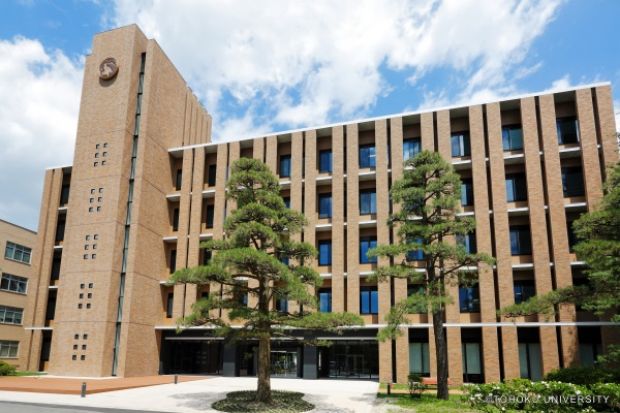Tohoku University: Future Global Leadership Programme Entrance Ceremony 2022
Tohoku University welcomed 28 new international undergraduates, representing 12 countries, to the Future Global Leadership (FGL) programme at an entrance ceremony on September 29. It was the first time since the COVID-19 pandemic began, that the ceremony was held in person on campus.
The students are enrolled in one of the degree programme’s three courses taught entirely in English – advanced molecular chemistry (AMC), international mechanical and aerospace engineering (IMAC-U) and applied marine biology (AMB). They will also have the opportunity to take classes with local Japanese students outside their chosen course, in a co-learning environment aimed at encouraging cross-cultural interaction and exposure.
In his welcome speech, Executive Vice President for Education and Student Support Hirotsugu Takizawa said that to solve many of the world’s current challenges, a broad foundation of knowledge, comprising both the sciences and humanities, is required. “This is cultivated not by merely specializing in one’s field, but by interacting with students gathered from around the world and learning together in a way that transcends academic boundaries.”
He then urged the students to make the most of their time at Tohoku University by embracing new experiences in and out of the classroom. “It is our greatest wish that you find the next four years here to be a wonderful and enriching experience,” he said.
To prepare for the programme, the FGL students attended three months of “pre-enrollment education” online during the summer. They had Japanese language lessons with Tohoku University students and worked on special assignments meant to review their knowledge of STEM subjects.
“These past three months of online classes have been wonderful, as they allowed us to get to know each other and the amazing professors,” said Adriel Imaran Santoso in his speech on behalf of the IMAC-U students. “I especially enjoyed the Japanese language classes, because we were able to interact with each other and have fun while learning day-to-day Japanese along the way.”
He described entering university as “a fresh new chapter in our lives, where we now have the freedom to choose what we want to study and pursue our passions,” adding that he chose Tohoku University because of its prominence in the Japanese aerospace industry.
For Thomas Harrison, who spoke on behalf of students in the AMB course, it is important to focus on similarities. Japan may seem very different at first, he said, “but we should feel at home, because we have a connection with each other, and Japan will always have some similarities to our own country.”
As an example, he mentioned that Japan and Britain are both island nations, and that “while I’m here studying marine biology and its relation to society, I can always draw a link back home. I can think of experiences I’ve had there, and whether those experiences are relevant here; and also think of how I can use the information I learn here, back home.”
Representing the AMC students was Alexandru Craevschi from Moldova. He spoke of how chemistry has allowed him to combine his love for both the arts and sciences. “The creativity and freedom of the arts make me enjoy it very much, but I also admire the practicality of science and its discoveries,” he said. “So chemistry has been a turning point for me – as I can learn the complex mechanisms of the reactions, while drawing beautifully intricate molecules in my notebook.”
He added that he hopes to “learn more chemistry and also develop my own chemistry with the brilliant people here at the university and in Sendai.”
Tohoku University’s popular exchange programmes attract hundreds of students each year from partner universities around the world.

